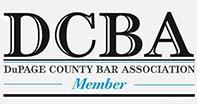Recent Blog Posts
New Illinois Law Encourages Probation for Low-Level Offenders
 2017 brings some good news for certain low-level offenders who could be facing a prison sentence. A new law effective Jan. 1, 2017 requires judges to review presentence reports and give reasons why an offender is being sentenced to jail time if the crime is a Class 3 or Class 4 felony and the offender has no prior violent convictions.
2017 brings some good news for certain low-level offenders who could be facing a prison sentence. A new law effective Jan. 1, 2017 requires judges to review presentence reports and give reasons why an offender is being sentenced to jail time if the crime is a Class 3 or Class 4 felony and the offender has no prior violent convictions.
Thus, if you are convicted of a crime that could be punishable by probation or conditional discharge, and you have never been sentenced to either before, a judge must explain why a prison sentence is appropriate.
This law should have the effect of reducing the number of offenders sentenced to a prison term and increase the number of offenders receiving probation. Supporters of the law say that it will:
- Save taxpayer money. Taxpayers spend $1.3 billion on the Department of Corrections and $131 million on the Department of Juvenile Justice each year in Illinois. One year of incarceration for one inmate costs $22,000.
Poor Impulse Control Rooted in Teen Brain Development
 Teens and juveniles are known to act without thinking about the consequences. This is known as poor impulse control, and scientists believe that there is a particular area of the brain that is responsible for such behavior.
Teens and juveniles are known to act without thinking about the consequences. This is known as poor impulse control, and scientists believe that there is a particular area of the brain that is responsible for such behavior.
What Is Poor Impulse Control?
Poor impulse control is often viewed as immaturity or poor decision-making. This characteristic typically comes up in teenagers. As any parent can attest, younger children are often more cautious than teens.
Neuroscientists say that teens’ poor impulse control comes out the most when they are in social situations. This can lead to teens committing crimes or being accused of crimes. For example, a teen may be more likely to take drugs, get into a fight, or drive dangerously when around other teenagers.
What Causes Poor Impulse Control in the Brain?
Neuroscientists believe that they have pinpointed where in the brain impulse control originates and it is from the ventromedial prefrontal cortex. According to scientists, teens who are able to manage their impulses have higher activity in this brain region. The ventromedial prefrontal cortex part is considered to be the “brake pedal” of the brain’s decision-making function.
Police Take Winning Lottery Ticket During Drug Raid
 A woman in Decatur, Illinois lost her winning lottery ticket when her home was raided after her boyfriend was suspected of dealing drugs. The winning scratch-off ticket was worth $50,000. How could the police do this legally?
A woman in Decatur, Illinois lost her winning lottery ticket when her home was raided after her boyfriend was suspected of dealing drugs. The winning scratch-off ticket was worth $50,000. How could the police do this legally?
The answer is that there is a procedure in Illinois called asset forfeiture that allows police to seize property that is suspected to be related to a crime or the fruit of a crime. In the case of the winning lottery ticket, police believed that the ticket was purchased using proceeds from drug dealing.
A trial court ruled that the lottery ticket could be returned to the girlfriend, who was the person who scratched the ticket off. However, the appellate court reversed, holding that police could keep the ticket and the winnings.
Other Forfeiture Cases in Illinois
According to government records, Illinois police have seized $72 million in assets over two years. That is a staggering amount. There are multiple groups who find this practice unfair and utilized too often.
Your Rights If You Are Suspected of Shoplifting
 Shoplifting is a common crime. More than 10 million people have been caught shoplifting in the U.S. in the past five years, according to the National Association of Shoplifting Prevention.
Shoplifting is a common crime. More than 10 million people have been caught shoplifting in the U.S. in the past five years, according to the National Association of Shoplifting Prevention.
Being accused of shoplifting or theft is unique in that police are not usually involved, at least at first. Usually, a security guard or someone else employed by the store is the person to first accuse someone suspected of shoplifting. Because of this, there are different rules that stores and security guards must follow.
What happens if you are suspected of shoplifting? First, a store employee may stop you, and they can stop you before you exit the store. Under Illinois law, a store can detain you if they have “reasonable grounds” to believe that you shoplifted. The store can only detain a suspect in a “reasonable manner and for a reasonable length of time” for the purpose of:
When Can You Be Charged with Cyberstalking in Illinois?
 Cyberstalking is more than just Google searching or Facebook snooping. Under Illinois law, cyberstalking is specifically defined act and is punishable by prison time under the law.
Cyberstalking is more than just Google searching or Facebook snooping. Under Illinois law, cyberstalking is specifically defined act and is punishable by prison time under the law.
There are two types of cyberstalking scenarios. Generally, they are:
- Harassment of another on at least two separate occasions through electronic communication that causes the target to fear for his or her safety (or the safety of another) or that causes the target emotional distress.
- Creation and maintenance of a website for at least 24 hours that is accessible to one or more third parties that make harassing statements or communicates a threat of bodily harm to another.
Cyberstalking is a class four felony. Class four felonies are punishable by one to three years in prison. Additionally, a fine of up to $25,000 could be imposed. Illinois law also provides for specific laws against cyberbullying for school children.
Recent Changes in Illinois Marijuana Laws
 Around the United States, there has been a concerted movement toward decriminalizing and legalizing marijuana. In Illinois, a bill was passed in which decriminalizes small amounts of the drug, meaning that any offense resulting from getting caught with marijuana will be civil in nature. However, there are many different aspects of the change that can come across as unclear to the average person.
Around the United States, there has been a concerted movement toward decriminalizing and legalizing marijuana. In Illinois, a bill was passed in which decriminalizes small amounts of the drug, meaning that any offense resulting from getting caught with marijuana will be civil in nature. However, there are many different aspects of the change that can come across as unclear to the average person.
The Facts
SB 2228 eliminates the criminal penalties for anyone caught with 10 grams or less of marijuana and imposes a fine of between $100 and $200, in most cases. It also establishes a precedent for any charges to be expunged after six months, if the offender does not get in any other legal trouble. This law also includes language that regulates the threshold over which a driver is ruled to be impaired. Previously, this was one of the main roadblocks that prevented the passage of a similar bill in 2015 that Governor Rauner pushed to include such a qualifier.
Underage Drinking and Its Consequences
 Many minors fail to realize the devastating legal consequences associated with underage drinking in the state. Indeed, Illinois is one of the states that has zero tolerance for underage drinkers as well, which means that getting caught indulging can lead to serious, long-term repercussions.
Many minors fail to realize the devastating legal consequences associated with underage drinking in the state. Indeed, Illinois is one of the states that has zero tolerance for underage drinkers as well, which means that getting caught indulging can lead to serious, long-term repercussions.
Obtaining and Drinking Alcohol
One of the most common alcohol-related acts that result in criminal charges for minors in Illinois involves using fake IDs to purchase alcohol. In Illinois, it is illegal for a minor to buy, consume, possess, or receive alcohol, and being found to have done any of these is an automatic three-month suspension of one’s driving privileges. Transporting alcohol is also illegal, and anyone in the vehicle may incur a fine, with the driver being on the proverbial hook for at least one-year mandatory suspension.
It is important to note that anyone who hosts a gathering where minors have access to alcohol may also be guilty of a crime under Illinois’s new “social host” law. Violation of the law may lead to a minimum penalty of $500, with a maximum of $2,500 plus one year in jail. This law was recently passed, aiming to cut down on underage drinking by depriving minors of places to drink, with similar laws proving successful in other states.
Expunging Your Illinois Criminal Record
 What many people do not realize is that if you are arrested or charged with a crime, a criminal record is automatically created even if the charges are later dropped. This can create problems later in life, especially with such common acts as applying for a job or trying to obtain credit. Sometimes, it may be possible to have your record expunged, which means that your previous charges or arrests can be erased. This is quite different from having your record sealed, which only blocks your criminal record from public view.
What many people do not realize is that if you are arrested or charged with a crime, a criminal record is automatically created even if the charges are later dropped. This can create problems later in life, especially with such common acts as applying for a job or trying to obtain credit. Sometimes, it may be possible to have your record expunged, which means that your previous charges or arrests can be erased. This is quite different from having your record sealed, which only blocks your criminal record from public view.
Do I Qualify for Expungement or Record Sealing?
Not everyone will be eligible to have his or her criminal record expunged. If you cannot, however, you may be able to have your record sealed. The criteria for having a criminal record expunged differ from state to state, but in Illinois, they are fairly straightforward. The most important point is that you must never have been convicted of a criminal offense or a municipal violation. If you have been, you will be automatically ineligible to expunge your record (with the rare exception of specific crimes committed by honorably discharged veterans).
Protections on the Right to Employment After a Felony Conviction Improving, But Still Minimal in Illinois
 Employment is needed to maintain a fulfilling and consistent lifestyle, yet earning a living from the employment available to you is not always possible. Those who have been convicted of a felony often struggle to find gainful employment. Thankfully, there have been some improvements made in recent years. However, a national analysis of the programs and protections that enable employment for felony offenders recently revealed that Illinois still has a long way to go in reducing recidivism rates throughout the state.
Employment is needed to maintain a fulfilling and consistent lifestyle, yet earning a living from the employment available to you is not always possible. Those who have been convicted of a felony often struggle to find gainful employment. Thankfully, there have been some improvements made in recent years. However, a national analysis of the programs and protections that enable employment for felony offenders recently revealed that Illinois still has a long way to go in reducing recidivism rates throughout the state.
Where Recidivism and Employability Intersect
One might assume that recidivism and employability are not connected. After all, if an offender wishes not to reoffend, then they will simply avoid doing so, right? Not exactly. Those who struggle to obtain gainful employment after they have already paid their debt to society may return to criminal activity to support their family. It is not that reoffenders are immoral or simply do not care (at least not in all cases or circumstances). The reasoning may be is that it is difficult to stand by and watch your children or spouse go without food and basic necessities because you are unable to obtain employment.
Reasonable Suspicion, Probable Cause, and Beyond a Reasonable Doubt: What is the Difference and How Might Each Affect Your Case?
 When it comes to criminal cases, there are three basic phrases that are often confused: reasonable suspicions, probable cause, and beyond a reasonable doubt. The following provides an overview of what these terms really mean and how they may affect your case. Any or all may be used, and the legal requirements for each are different, so be sure to consult with our criminal defense lawyers for a more in-depth understanding of how each term may or may not apply in your situation.
When it comes to criminal cases, there are three basic phrases that are often confused: reasonable suspicions, probable cause, and beyond a reasonable doubt. The following provides an overview of what these terms really mean and how they may affect your case. Any or all may be used, and the legal requirements for each are different, so be sure to consult with our criminal defense lawyers for a more in-depth understanding of how each term may or may not apply in your situation.
Reasonable Suspicion
Of all the terms used to describe the events that may lead up to an arrest, reasonable suspicion is the least demanding in terms of evidence and the reliability of that evidence. It is also where a lot of cases start. Essentially, it requires only that the officer has reason to believe that someone has (or is in the process of) committing a crime. Examples that may be considered valid reasonable cause could include stopping an erratic driver on suspicion of intoxicated driving and weapons frisks if the officer has reason to believe that the person being detained could be armed and dangerous.






 630-871-1700
630-871-1700


 630-871-1700
630-871-1700
